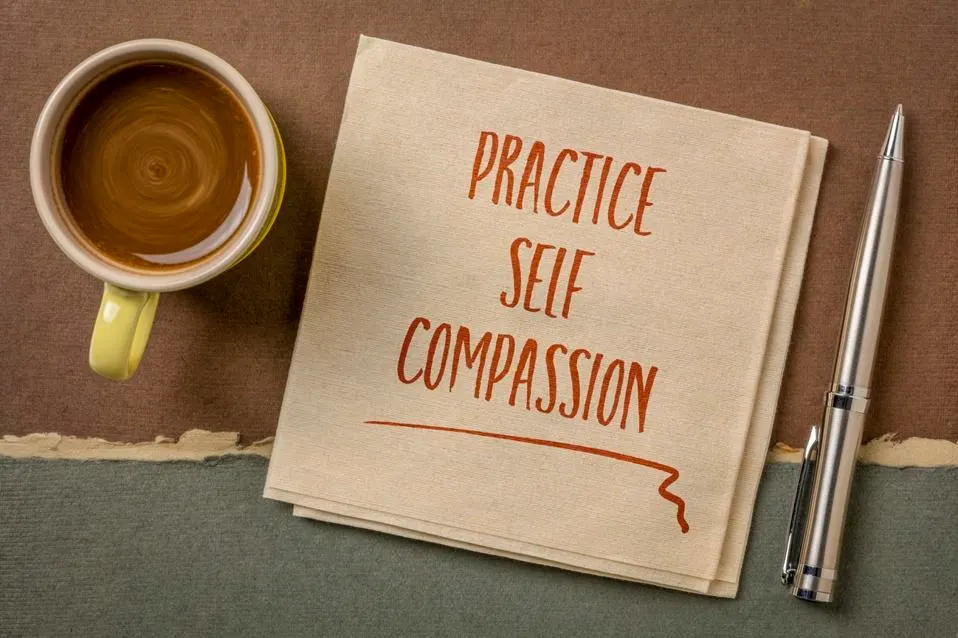Nurture Your Emotions & Mind with Compassion!
- Nurturer #1

- May 23, 2024
- 3 min read
Hello There! How are you doing today? Did you know that nurturing self-compassion can be a transformative practice that fosters resilience, well-being, and deeper connections to yourself and others? Do you know and understand that you have a purpose to fulfill while on this earth? Well, by nurturing mindfulness, self-kindness, and recognizing common humanity, you can develop a healthier, more supportive relationship with your inner being, paving the way for a more fulfilling and emotionally balanced life that can take you further than you could have ever imagined; helping not only yourself, but those around you as well.
What is self-compassion?
Self-compassion involves extending kindness and understanding to oneself during times of failure, suffering, or perceived inadequacy. This approach, based on mindfulness, self-kindness, and common humanity, nurtures the mind and emotions, fostering resilience and emotional well-being. People who practice self-compassion tend to handle stress better and recover more quickly from setbacks that arise in life.
Understanding Self-Compassion
1. Mindfulness: Being aware of the present moment without judgment can have a positive impact on your mental well-being. Acknowledging your pain and struggles without suppressing or exaggerating them is a big part of self-care. It's also helpful to face your emotions head-on and address them constructively.
2. Self-Kindness: Treating yourself with kindness means offering the same care and understanding you would give to a good friend. Instead of being overly critical of yourself, respond to your shortcomings and failures with warmth and understanding.
3. Common Humanity: It's important to recognize that suffering and imperfection are a natural part of the human experience. Acknowledging this is crucial for building deeper connections with others.
Implementing Self-Compassion
1. Start a Self-Compassion Journal: Jot down your thoughts and feelings, especially when you’re going through a tough time. Reflect on your experiences with an emphasis on self-kindness and understanding. Documenting your journey can help you see patterns and progress over time.
2. Use Self-Compassionate Language: Pay attention to your inner dialogue. Replace self-critical statements with supportive and encouraging ones. For example, instead of saying, "I fail at everything," try, "I’m not doing good right now, and that's okay. I am doing my best at this time."
3. Practice Mindful Meditation: Regular mindfulness meditation can help individuals gain a deep understanding and acceptance of their emotions. Engaging in guided meditations focused on self-compassion can be particularly beneficial.
4. Self-Compassionate Gestures: Small, physical gestures of self-kindness can have a big impact. Placing your hand over your heart, hugging yourself, or simply taking a moment to breathe deeply and relax can reinforce feelings of care and comfort.
5. Reflect on Common Humanity: When you experience setbacks, remind yourself that you are not alone. Reflect on the fact that everyone faces challenges and that suffering is a universal experience. This can reduce feelings of isolation and enhance your sense of connection with others.
6. Set Boundaries: Establishing personal boundaries is a fundamental aspect of practicing self-respect and self-care. It is important to be able to assertively decline requests when necessary and make your well-being a top priority to avoid feeling overwhelmed and harboring negative emotions.
7. Seek Support: Note that you are not alone; you reside in this big world; just knowing should bring you hope. Please do not hesitate to obtain help from those who care about you, such as your friends, family, or a mental health professional. Sharing your struggles with others can provide new perspectives and emotional relief.
The Benefits of Self-Compassion
The ability to practice self-compassion has an array of psychological benefits, including such as:
Increased Resilience: Self-compassionate individuals tend to cope better with stress and recover quicker from setbacks.
Improved Mental Health: Self-compassion is known to reduce levels of anxiety, depression, and stress. Research suggests that individuals who practice self-compassion tend to experience lower psychological distress and greater emotional well-being; compared to those who do not. This indicates that self-compassion may play a significant role in promoting mental health and resilience.
Greater Life Satisfaction: Individuals who incorporate self-compassion in their lives tend to experience elevated levels of happiness and overall life satisfaction.
Enhanced Motivation: Self-compassion unequivocally enhances motivation by creating a safe environment for growth and learning, debunking the notion that self-criticism drives success.
Conclusion
So, the bottom line is this, though there is an art to being compassionate, we must always be kind to ourselves! Self-compassion is indeed a game-changer for happiness and connection.
If you are finding yourself ready to unlock your inner strength and well-being; ready to nurture your emotions and mind, consider beginning your journey of self-compassion today? Practice being mindful, embrace kindness towards yourself, and remember we are all human beings that are not perfect; we all have flaws and must have compassion about this fact. By acknowledging and nurturing ourselves, we may be able to pave the way for a more supportive relationship and a more fulfilling life.
Nurturing Action
Need a gentle nudge on your compassionate journey? Contact US to see if or how we can help you move yourself forward. You do not have to go at this alone.
Nurturing Quote: I am able to let go of negative judgement towards myself and others and use compassion to lead the way in my positive shift.








Comments